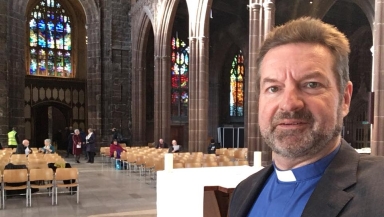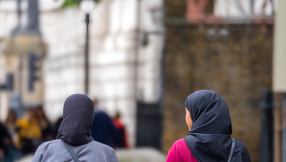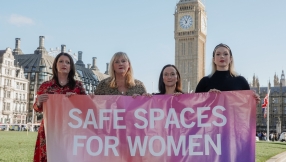
Anglican theologian and writer, Ian Paul, speaks to Christian Today about the significance of the Church of England General Synod's decision to back same-sex blessings, his plea to the bishops, and why he has no plans to leave.
CT: How do you feel after last week's vote?
IP: I feel frustrated because unfortunately there's been a good deal of dishonesty in the conversation, especially when you take some of the public statements from bishops or diocesan communications, and compare them with what was actually said. That's really unhelpful. Secondly, I feel saddened hearing messages from many clergy and colleagues saying, 'Well, if this is the Church of England then I need to look elsewhere.'
I think the way that the discussion has been communicated is doing huge damage to the Church of England, the Church in England, and the Church ecumenically around the world. I felt ashamed sitting in the Synod chamber with ecumenical representative Archbishop Angaelos [of the UK Coptic Orthodox Church] and Archbishop Sami [of the Anglican Province of Alexandria] both pleading with us not to go down this route because it would only damage relationships in the Communion, and ecumenical relationships with other Churches; only for the two Archbishops of Canterbury and York to then seemingly ignore that plea entirely, which is really shocking.
CT: Do you feel like the outcome was a foregone conclusion?
IP: The bishops said they were in listening mode, yet they gave no evidence of that whatsoever. The amendments that were put forward were all carefully worded to pick up the language the bishops had used and simply reiterate some of the things they had assured us of. Yet the Bishop of London, Sarah Mullally, simply rejected all but one of them out of hand. What was worse was that she said she agreed in principle with the content of them but several were ruled out on a technicality. Well, technicalities can be resolved. If that was the case, why didn't she resolve them beforehand?
Furthermore, the laity voted for five of the amendments but the bishops vetoed four of them en bloc. Where are we at as a Church when the bishops say they are listening, yet completely ignore the laity when they speak? That is very bad for the Church, for the state of Synod, and for the credibility and standing of the House of Bishops. Confidence in the House of Bishops was already catastrophically low. The content of the debate, the communication, and the outcome have only diminished that standing even more and I don't think it's good for the Church when bishops are held in such low regard because of what they've done.
CT: The Archbishop of Canterbury, Justin Welby, told the Anglican Consultative Council in Ghana that he "will not cling to place or position as an Instrument of Communion" in the Anglican Communion, which is presumably in response to statements from the Global South provinces saying that he can no longer be the 'first among equals'. What do you make of his comments?
IP: It sounds like humility but I think it's dereliction of duty. Previously, Justin has claimed that the Archbishop cannot exercise dissent but that's simply not true. He did it in 2016 and if he was minded to, he was perfectly capable of saying that he disagreed with this move for the sake of the Communion. It's been absolutely clear what the mind of the Communion has been on this. When the Episcopal Church in the USA unilaterally changed its doctrine of marriage, it was the mind of the Communion that it was a tearing of the fabric of the Communion and it was a betrayal of the interdependence that the Communion has always felt.
At the Lambeth Communion last summer, the Bishop of Dallas, George Sumner, said that Churches used to be canonically independent. Now they are theologically independent as well. The question here: does the Anglican Communion still exist? If it does, it doesn't include the Church of England anymore and maybe Justin is jumping before he's pushed. But there was a perfectly good alternative. He could have kept his word from before; he could have followed through on commitments that he himself had previously made, and he could have recognised that those Churches that change their doctrine unilaterally are in fact tearing the fabric of the Communion and damaging relationships with the rest of the Church. That would have been the honest thing to do and I'm sorry that he's taken the line he has.
In the ACC meeting he also said things that contradicted what he said in Synod and that's never a good situation to be in. The idea that he was hauled before a hostile Parliament is nonsense. There was a group of 12 MPs, many of whom were gay, and they were sabre-rattling about disestablishment. But they had no authority to say that and Andrew Selous [MP and Second Church Estates Commissioner], speaking during the debate in Synod, said this was not true and that there were MPs who had spoken to him in support of the Church's position on doctrine. He also said that Parliament had no role in changing the Church's doctrine - he was absolutely clear on that.
So Justin is either listening to social media too much or he's deluding himself. And to talk to Christians who are genuinely in contexts where their governments are violently opposed to them, and claim the same kind of victim status is really disingenuous.
CT: Going back to the Living in Love and Faith process, do you feel like anything positive came out of it or has it just been a huge waste of time?
IP: There are pockets of positive things, not so much in the book or videos but in some of the other resources on the website. But the real difficulty is that the bishops' approach now has effectively trashed all the principles of the LLF in terms of listening carefully to one another and not rushing to a decision. The LLF process itself never declared that its intention was to settle the matter. It was only to provide a context for discussion, and the number of churches that even took it up and engaged properly with it has been very disappointing.
What we needed all along was some really good teaching from the bishops on why the Church's doctrine on marriage is good news and a good gift to the world, and unfortunately we had none of that. We spent £1 million pounds on this project and at the end of it, some bishops decided to railroad the Church not only away from Scripture but away from its own doctrine and in defiance of the Church's own constitution.
The Church of England is defined in Canon A5 as being grounded in Scripture and in such teachings of the ancient Fathers and Councils of the Church as are agreeable to the same, and in the formularies of the Church - the Thirty-nine Articles, the homilies and the Ordinal. Some bishops seem determined to deconstruct all of those things and yet you can't deconstruct those things without deconstructing the Church of England. So it's been a very damaging outcome.
CT: Despite what the Church of England is insisting, a lot of evangelicals feel that this does indeed amount to a change in doctrine and that the distinction between a blessing and marriage will be lost on those outside the Church. What do you think about that?
IP: What's really interesting is that the amendment that did get through Synod reiterates the fact that doctrine has not changed and that the Church of England still believes that marriage is between one man and one woman and that this is the only appropriate place for the expression of sexual intimacy. So the difficulty is: what do you do with bishops who say that doctrine hasn't changed and then by their own words, say things that suggest that doctrine has changed? You simply can't carry on like that and in the next three or four months leading up to the July Synod, these contradictory actions are going to be severely tested.
CT: What now about the push for equal marriage. Do you think that's a foregone conclusion as well and just a matter of time?
IP: No, not at all. I don't think we've made any progress towards that and what the bishops are going to experience is a very dramatic pushback. There's a loss of confidence in dioceses and bishops are going to find that the financial challenges will accelerate because of that. They will also be challenged on some of the specific claims they have made that do not stand up to scrutiny, and I think when we come back to this in July, it's going to be even more of a mess.
CT: The pastoral guidance is going to be updated. What do you want to see in this guidance?
IP: I want the guidance to have integrity and to have integrity you've got to allow clergy to fulfil their ordination vows. These vows include statements that I believe will uphold and teach and model the doctrine of the Church - which they tell us has not changed! That means that the only appropriate pattern of life for clergy is either marriage to someone of the opposite sex, or celibacy. That is at the core of the pastoral guidance and the doctrine of the Church, so there's no room for manoeuvre on that and I don't see how the House of Bishops can create pastoral guidance which can avoid that.
CT: The Church of England Evangelical Council is calling for 'good differentiation' and the putting in place of 'new imaginative structures', but some just think that faithful evangelicals should leave. What are your thoughts on that?
IP: Article 20 says that the Church has no authority to decree things which are contrary to Scripture. Canon A5 says that the doctrine of the Church is rooted in Scripture. The ordination vows say that we as clergy will uphold the doctrine of the Church thus rooted. Why should I leave the Church which believes that? If people don't believe that, then I'd be really happy if they were to find a home elsewhere. If differentiation's the way we do that then so be it. Why should anyone who believes and upholds the doctrine of the Church be the ones to leave?
CT: What is your message to the CofE leadership?
IP: Please, fulfil your vows. Please be good shepherds to the Church. Please uphold the teaching of Jesus and the teaching of Scripture. Please be faithful to the doctrine and heritage of the Church as we have it. If you do not, then there is no hope for the Church of England. The whole point of the Church is to hold out the truth of the Gospel in order to invite people to discover the liberating love of God, which involves repentance and faith, changing direction and receiving the Good News of the Kingdom. If bishops just want to paper over cracks to preserve unity or commend themselves to the surrounding culture, go and find another job. But if you're going to be a bishop in the Church of England, then please do your job: uphold the truth, preach the Gospel, and see people come to faith. There's no other agenda.













